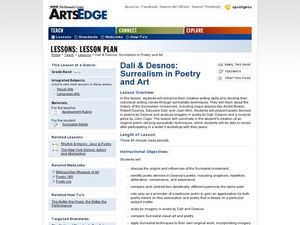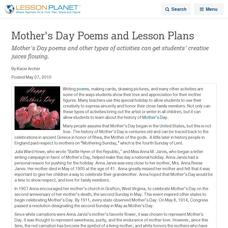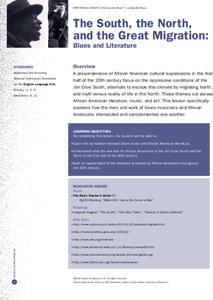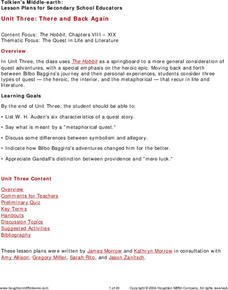Curated OER
Agriculture Awareness Through Poetry
Whether you are viewing a landscape painting of a farm, examining a still-life portrait of a bowl of fruit, or reading a descriptive poem about cultivating food, you can't deny that agriculture plays a major role in visual and language...
Curated OER
Dali & Desnos: Surrealism in Poetry and Art
Young scholars research the surrealism movement and its primary artists. Language is also analyzed, and students will create their own original poem utilizing surrealistic techniques.
Royal Canadian Legion
Teachers' Guide: Take Time to Remember
The Royal Canadian Legion offers this teacher's guide designed to remind learners of all ages of the sacrifices made by Canadian soldiers in not only World War I but also the Korean and Gulf wars. The 42-page packet is filled with...
Curated OER
Mother's Day Poems and Lesson Plans
Mother's Day poems and other types of activities can get students' creative juices flowing.
Teacher's Guide
Friendship Cinquain
Invite your class to share their appreciation of one another through the work of a Valentine's Day cinquain poem. Scholars use their knowledge of their classmates to describe them through adjectives, action verbs, and a complete...
Curated OER
Enhancing Poetry with American Memories
Students explore poetry using American Life Histories: Manuscripts from the Federal Writers' Project. They compose their own unque "found poetry" based on the stories found in the collection.
Curated OER
The South, the North and the Great Migration: Blues and Literature
Here is a complex lesson plan that interweaves the history of the Jim Crow South and the Great Migration with the study of poetry, art, and blues music from the Harlem Renaissance. The plan helps young historians develop a deep...
Curated OER
Found Poetry with Primary Sources: The Great Depression
Students read a sample found poem and create one together as a class. In this Great Depression lesson, students select a topic, such as miners, and read primary source documents related to the topic. Students select one narrative as the...
Curated OER
The Odyssey: A Deeper Appreciation
Students read "The Odyssey" and identify the ways it relates to their own lives. As a class, they also examine the history of the story and identify the various Greek gods and goddesses. In groups, they focus on the geography of the...
PBS
Dear Pen Pal
Explore cultures from around the world with an engaging pen pal resource. Through a series of classroom activities and written correspondence, children learn about the favoritec pastimes, schooling, geography, and weather that is...
Curated OER
The Butterfly Project: Study and Response to Children's Poetry
Eleventh graders read various examples of poems of the humans behind the Holocaust and who perished during the event. Focusing on the number of children who died, they collect butterflies for the Holocaust Museum in Houston. They view...
Teaching Tolerance
Community Arts Showcase
An art showcase encourages class members to explore the themes of social justice and tolerance. They create an original artwork, engage in group discussions, and journal writing. The art gallery also provides a chance for families and...
Curated OER
Sybil Ludington's Ride - a poem
Fourth graders examine the role a teen from the Hudson Valley played in the American Revolution. They view the map of Sybil's ride and calculate the distance using the map's legend.
Curated OER
A New Life, a New Home
Young scholars connect with an immigration unit through research, journal writing, digital photography, and a movie production using iMovie. By acting out the immigrant's experience, students gain a deeper understanding and appreciation...
Curated OER
WANTS VS. NEEDS
Students gain an appreciation for wants and needs by analyzing poems, researching spending choices on the internet, interviewing family members, and create power point slides.
Curated OER
My Secret War: Lesson 5
Fifth graders determine how freedom comes with rights and responsibilities through literature and poetry about World War II. In this World War II lesson, 5th graders use the letters in the word "infamy" to write an acrostic poem. They...
Curated OER
Where in the World?
Sixth graders research online various types of poetry. In this poetry analysis lesson plan, 6th graders research different types of poetry online, their characteristics, and poets. Students create a class atlas that incorporates the...
Curated OER
Native Americans
Young scholars develop an appreciation of American Indians. They sing "Ten Little Indians," then act out "Brave Little Indian," an action story. They learn the poem "Then and Now."
Curated OER
Lesson Plan - The Barbara Frietchie Story – Fact or Fiction?
Students differentiate between fact and legend. In this Barbara Freitchie lesson plan, students read poetry and non-fiction accounts regarding the story of Freitchie. Students analyze the story of the American patriot to determine how...
Curated OER
Molly's Pilgrim
Third graders explore the multi-ethnic nature of America's citizens and examine the symbolism of the Statue of Liberty. In this Molly's Pilgrim lesson, 3rd graders discuss the poem "The New Colossus," examine vocabulary words...
Curated OER
American Families: Portraits of African-American Families
Students develop a greater understanding and appreciation for their families. They increase personal self-esteem and pride as a result of studying about families through literature. They assess the importance of family values and...
Curated OER
The Hobbit
Young scholars list W.H Auden's six characteristics of a quest story. They say what is meant by a "metaphorical quest." Pupils discuss some differences between symbolism and allegory. Students indicate how Bilbo Baggins's adventures...
Curated OER
The Short Story: A Slice of Life
Students are introduced to the characteristics of the short story. Individually, they use their own personal experiences to write a poem about their families to get them used to writing. Next, they practice reading various short...
Curated OER
Holocaust Theme
Students complete a unit of lessons on the events of the Holocaust during WWII. They write daily journal entries, create a collage, view and discuss videos, read and analyze novels and poetry, and complete a novel project.























